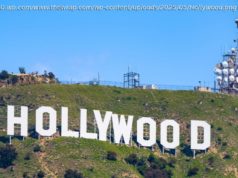This sequel to “Sicario,” starring Benicio Del Toro and Josh Brolin, is also a geopolitical action thriller and a samurai picture.
“Sicario: Day of the Soldado,” directed by Stefano Sollima from a script by Taylor Sheridan, is an unusual kind of sequel. Dumber, less inventive and not as pretentious as “Sicario” ( released in 2015, directed by Denis Villeneuve and written by Mr. Sheridan), it both advances and retreats, expanding on the original and narrowing its scope. Emily Blunt is missing, and so is some of the sharpness that made “Sicario” interesting. This time, we’re in more familiar genre territory.
Just which genre “Day of the Soldado” belongs to takes a while to determine. When a jihadist suicide bomber blows himself up near the United States-Mexican border — an attack followed by another, even more horrific bombing in Kansas City, Mo. — you may think you know what’s coming: a Trump-era throwback to grim geopolitical revenger’s tales that flourished during the administration of George W. Bush. Sure enough, before too long, suspected terrorists are being chased down in various countries, hooded and interrogated without regard for the niceties of human rights.
“This is Africa: I can do whatever I want,” says Matt Graver (Josh Brolin), the American operative in charge of the necessary dirty work. He’s the kind of rebel called on to do jobs that politicians and military careerists are too squeamish to handle. He favors sandals, cargo shorts and heavy facial hair, all signs of warrior iconoclasm. (Eventually things get intense enough for him to shave.) You know this guy, not only because you saw “Sicario” but also because you are aware of some of the other non-ironic Josh Brolin performances, most recently and germanely in “Deadpool 2.”
But glimmers of irony, soupçons of subversion, start to appear amid the somber, super-violent, “24”-ish proceedings. Matt’s handler (Catherine Keener) and the weasely secretary of defense (Matthew Modine) preserve deniability by giving their guy carte blanche. His plan is to apply a lesson “we learned in Iraq,” namely that it’s easier to prevail when you make your enemies fight each other. Apparently that’s why that particular war went so well, which sounds more like a macabre joke than a sober assessment of policy. Mostly it’s sheer misdirection, a feint in the direction of global military conflict in a movie whose real concerns lie elsewhere.
Matt’s bright idea is to foment a war between two rival Mexican drug cartels, at least one of which might have helped the terrorists. He enlists the help of Mr. Sicario himself, Alejandro (Benicio Del Toro), a stupefyingly competent killer with a personal grudge against one of the cartel bosses. That guy was responsible for the slaughter of Alejandro’s family, and in a twist of screenplay karma, Alejandro acquires extralegal custody of his enemy’s teenage daughter, Isabel Reyes (Isabela Moner).
Meanwhile, another teenager, Miguel Hernandez (Elijah Rodriguez), a Mexican-American boy with family on both sides of the border, joins a gang of human traffickers. How his story will entwine with the other threads of the plot is a significant source of suspense. Another is the relentlessly foreboding, throbbing score by Hildur Gudnadottir. Her music creates the impression that “Day of the Soldado” is a dark, high-stakes thriller, much as the bulked-up military hardware and souped-up operational jargon make it look like a war movie and the border backdrop gives it a sheen of sour topicality.
But the film’s deep genetic code — it’s true grit, speaking of Josh Brolin — is found in a handful of quieter scenes, most notably when Alejandro and Isabela encounter a poor family in the Mexican desert. The innocence and decency of these strangers, who have nothing to do with government strategy or criminal enterprise, signal the presence of the dusty and durable machinery of the western.
The Spanish word “sicario,” usually translated as hit man or contract killer, has an accidental resemblance to the word samurai — the same first letter, the same pattern of consonants and vowels. (“Soldado” means soldier.) Alejandro is cousin both to the masterless swordsmen of Japanese cinema and to the lone gunslingers of the postwar Hollywood western. He exists at the margins of civilization, outside the reach of the law, but his limitless capacity for violence coexists with a deep ethical code. He is both predator and protector.
Alejandro also possesses nearly superhuman — if not outright supernatural — survival skills, and “Day of the Sodaldo,” for all its lean macho bluster, flirts with silliness as well as sentimentality. Neither is entirely a bad thing. Mr. Sollima and Mr. Sheridan (who also wrote “Hell or High Water” and “Wind River,” two superior recent neo-westerns) are canny about what the audience might want in the way of cruelty, and also about how much we are likely to accept.
Including how much reality. “Day of the Soldado” gestures toward a few from-the-headlines subjects and accidentally collides with others, but like most Hollywood movies of the moment, it keeps actual politics at a safe distance. Instead, it embraces a comforting form of cinematic conservatism, based on the mythical competence and essential decency of men whose vocation is violence. The two main adult male characters might look and act like brutal nihilists, but don’t worry. By the end, they put the “I care” in “Sicario” and remind everyone that you can’t spell “Soldado” without “Dad.”






